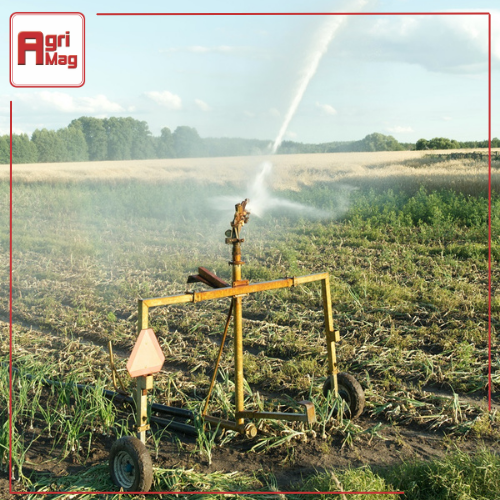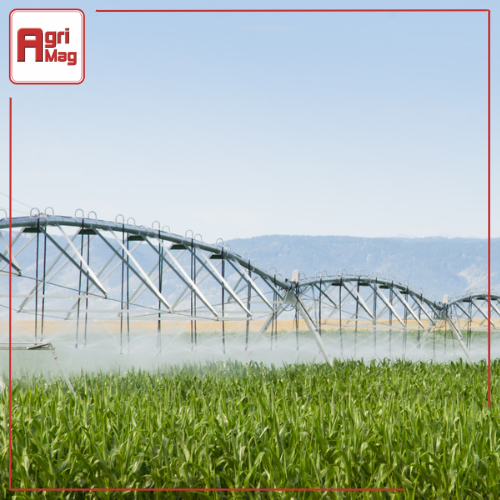
Overview of Irrigation in South Africa - Best Solution for Farming
Date: 23/11/2023
What is irrigation and the role it plays in agriculture? Irrigation in South Africa plays a crucial role in supporting the country's agriculture, which is a significant part of the economy and essential for food security. With varying climates and uneven rainfall distribution, irrigation systems have become vital for enhancing crop yields and sustaining agricultural activities. This article provides an overview of the importance of irrigation for agriculture, the historical development of irrigation systems, and the current state and extent of it in the country. Find affordable and reliable equipment on AgriMag to help grow your farm.

Importance of Irrigation in South Africa for Agriculture
Agriculture is a cornerstone of the country's economy, contributing significantly to GDP and employment. However, the country's semi-arid climate and irregular rainfall patterns pose challenges for consistent agricultural production. This is where irrigation becomes essential. By providing a reliable water supply, irrigation allows farmers to cultivate crops throughout the year, ensuring food security and stable incomes.
It supports the growth of a variety of crops, including maize, sugarcane, and vegetables, which are vital for both domestic consumption and export. Additionally, it enables the cultivation of high-value crops like fruits and nuts, which require consistent water availability. This not only boosts the agricultural sector but also encourages investment in modern farming techniques and technologies.
Read: Vegetable Farming: What You Need to Know
Historical Development of Irrigation Systems
The history of irrigation in South Africa dates back to ancient times when indigenous communities used simple techniques to channel river water to their fields. With the arrival of European settlers in the 17th century, more advanced irrigation methods were introduced, including furrow and flood irrigation.
In the 20th century, the government began to recognise the need for structured irrigation schemes to support the growing agricultural sector. Major irrigation projects were initiated, such as the Orange River Project, which involved the construction of dams and canals to distribute water to farmlands. These projects transformed arid and semi-arid regions into productive agricultural zones.
The development of irrigation infrastructure continued to advance with the implementation of drip and sprinkler systems in the latter half of the 20th century. These modern methods significantly improved water use efficiency, reducing wastage and enhancing crop yields.

Current State and Extent of Irrigation
Today, irrigation covers approximately 1.6 million hectares of agricultural land in our country, accounting for about 10% of the total arable land. The major irrigation areas are located in provinces such as KwaZulu-Natal, Mpumalanga, and the Western Cape, where climatic conditions and soil quality are conducive to intensive farming.
Modern irrigation practices, including drip and micro-sprinkler systems, have gained popularity due to their efficiency and water-saving benefits. These systems deliver water directly to the plant roots, minimising evaporation and runoff. The use of advanced technologies like remote sensing and automated irrigation controls has also been on the rise, allowing for precise water management and monitoring.
Despite these advancements, the sector faces several challenges. Water scarcity remains a pressing issue, exacerbated by climate change and increasing competition for water resources from urban and industrial sectors. Additionally, aging infrastructure and inadequate maintenance of irrigation systems pose significant hurdles.
Efforts are being made to address these challenges through government initiatives and partnerships with the private sector. Programs aimed at upgrading existing infrastructure, promoting water-efficient technologies, and supporting smallholder farmers are in place to ensure the sustainability of irrigation practices.
With all being said, irrigation in South Africa is vital for the sustainability and growth of the agricultural sector. Its historical development has laid the foundation for modern irrigation practices that support food security and economic stability. However, the current state of irrigation also highlights the need for ongoing improvements and investments to address challenges such as water scarcity and infrastructure maintenance. By continuing to innovate and invest in efficient irrigation systems, the country can secure a prosperous future for its agricultural industry and its people. To help you expand your farm, AgriMag offers dependable and reasonably affordable equipment.
Categories:
Common category
Category Search:
Latest articles:

Top Irrigation Tips for Farmers Facing Water Restrictions

Understanding the Role of Truck Tractors in Logistics

Farming Equipment Upgrades for Small-Scale Farmers in South Africa

